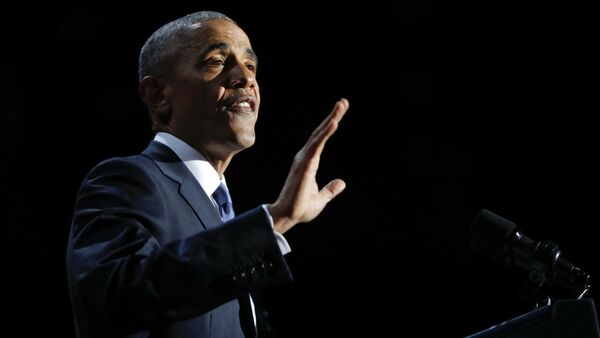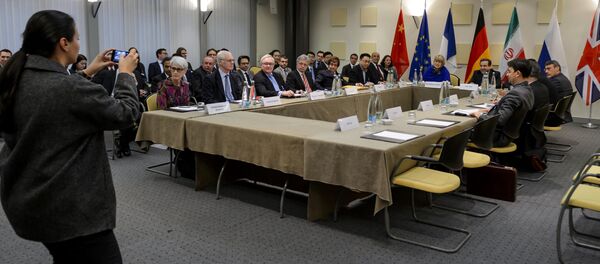The Iranian nuclear deal is an international agreement on Tehran's atomic program which was reached in Vienna on July 14, 2015 between Iran, the P5+1 group and the European Union. The P5+1 includes include Russia, the US, China, France, Britain and Germany.
The deal stipulates that Iran must agree to eliminate its stockpile of medium-enriched uranium, cut its stockpile of low-enriched uranium by 98 percent and reduce the number of gas centrifuges by about two-third for 13 years.
In return, Iran will receive relief from nuclear-related economic sanctions from the United States, the European Union and United Nations Security Council.
In his farewell address on January 10, President Obama mentioned the Iranian nuclear deal among signature accomplishments during his tenure.
"If I had told you that we would open up a new chapter with the Cuban people, shut down Iran’s nuclear weapons program without firing a shot, and take out the mastermind of 9/11… you might have said our sights were set a little too high. But that's what we did. That's what you did. You were the change," he said.
Commenting on this, Seyed Mohammad Marandi specifically drew attention to the fact that "the Iranian nuclear deal is not the achievement of any particular country, namely, the United States, but the [result of] the joint efforts of all the countries which participated in the negotiating process."
"Apart from the United States, these are Russia, China, Britain, France and Germany. By the way, the position of some members of the P5+1 group was more constructive during the talks than that of the US. The Americans failed to play a positive and constructive role in this regard. As a result, the agreement was clinched, but not thanks to the United States," Marandi said.
He also pointed to Washington's constant attempts to violate the agreement, notably by threatening to slap new sanctions on individual Iranians and companies.
"If Barack Obama sees the Iranian nuclear deal as an important achievement, then why has only the United States been steadily trying to violate this agreement?" Marandi said.
He was echoed by Hassan Hanizadeh, Iranian political analyst and former chief editor of MehrNews, who said that Barack Obama's farewell speech is worth mentioning, especially in terms of the deal related to the Iranian nuclear program.
"This nuclear deal cannot only be considered as an achievement of Barack Obama's policies. First and foremost, the deal is the success of collective efforts by other participants of the negotiating process, such as Russia, China, Britain, France and Germany, which played an important role in reaching the agreement," Hanizadeh said.
In his farewell speech, Obama tried to describe Iran as a country which had allegedly succumbed to the US pressure and went to all the concessions in its nuclear program.
"But the reality is absolutely different. Iran, as before, continues its nuclear program under the strict supervision of the International Atomic Energy Agency (IAEA)," Hanizadeh concluded.
Never miss a story again — sign up to our Telegram channel and we'll keep you up to speed!




